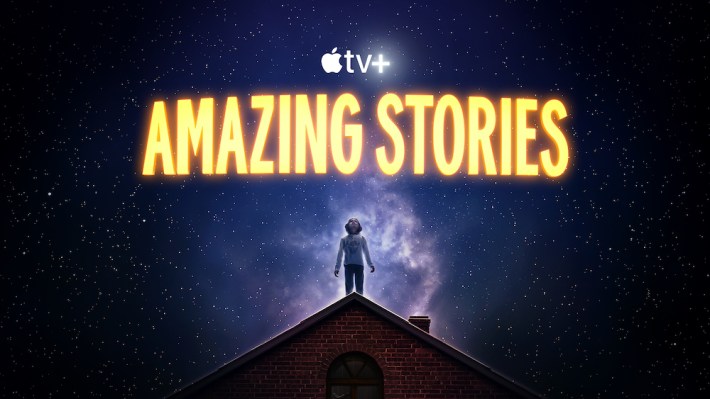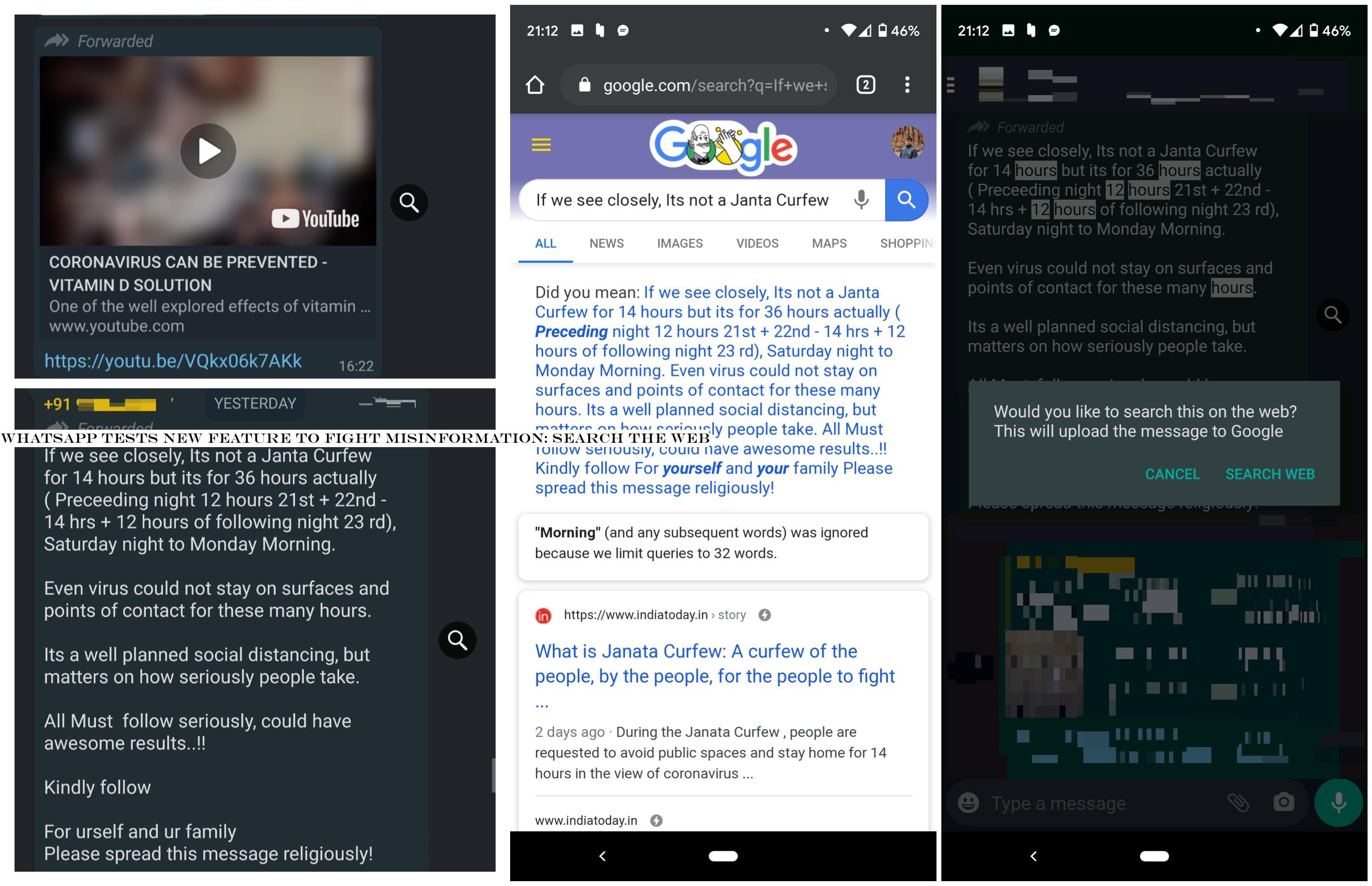Music
Trailers
DailyVideos
India
Pakistan
Afghanistan
Bangladesh
Srilanka
Nepal
Thailand
Iraq
Iran
Russia
Brazil
StockMarket
Business
CryptoCurrency
Technology
Startup
Trending Videos
Coupons
Football
Search
Download App in Playstore
Download App
Best Collections
Technology
Much of the world is waking up to a strange new reality. As the coronavirus strain, COVID-19, swept across the planet, today may go down in history as the day when huge numbers of countries were largely united in a global shut-down to address the pandemic.
TechCrunch brings you a wrap of the technology worldresponse to the virus so far in our own dedicated COVID-19 coverage.
• In Extra Crunch we cover how you should pitch a story in the era of COVID-19.
• Google says coronavirus has become its biggest search topic by a country mile this year, and to continue its efforts to harness that attention in the best possible way, late on Friday the company launched a new information portal dedicated to the pandemic as well as an improved search experience for desktop and mobile.
• In response to COVID-19, Hulu has added a free live news stream to its on-demand app for customers who only subscribe to its on-demand service, not its live TV add-on. The news coverage is provided in partnership with ABC News Live, and brings live news 24/7 to Hulu on-demand subscribers as part of their existing subscription.
• Unfortunately, &Robocalls&, which have been targeting the vulnerable and unsuspecting for years, are taking advantage of the current global catastrophe to enhance their scams. The FCC warns that it has received numerous reports of coronavirus-related robocall cons in the wild — herewhat to look for.
• Two major tech companies — Amazon and IBM — have each announced programs to encourage developers to find solutions to a variety of problems related to the pandemic.
• Google announced on Twitter that it is cancelling its annual I/O developer conference out of concern for the health and safety of all involved. It will not be holding any online conference in its place either.
• Rivian, the buzzy electric vehicle startup that is backed by Amazon and Ford, is shutting down all of its facilities due to the spread of COVID-19, the disease caused by coronavirus. Rivian employs more than 2,000 workers across several locations, including its headquarters in Plymouth, Mich., a factory in Normal, Ill. as well as operations in San Jose and Irvine, Calif., where engineers are working on autonomous vehicle technology. Rivian also has an office in the U.K.
• During two of this weekWhite House briefings, President Trump referred specifically to two potential treatments that have been identified by medical researchers and clinicians. But no drugs or treatments have been proven as effective for either the prevention of contracting COVID-19 or for its treatment. While chloroquine has been used for decades to treat malaria, and chronic rheumatoid arthritis, it can have dangerous side effects, including death, if taken incorrectly. Even when taken correctly, it can cause things like stomach distress and even permanent damage to a personvision.
• The COVID-19 outbreak isn&t just affecting movie theaters — it has also halted TV and film production around the world. For Netflix, that has included production on high-profile titles like &The Witcher& and &Stranger Things.& So the streaming company just announced that it has created a $100 million fund that it says will support the cast and crew who have suddenly found themselves out of work.
• Elon Musk tweeted Friday that Tesla and SpaceX employees are &working on ventilators& even though he doesn&t believe they will be needed. His confirmation on Twitter that both of the companies he leads are working on ventilators comes a day after New York City Mayor Bill de Blasio made a direct plea to Musk to help alleviate a shortage at hospitals gearing up to combat COVID-19.
• Uber Eats is waiving delivery and activation fees in the UK to support restaurants hit by decreasing demand during the coronavirus crisis. The measure will apply until March 31 when it says it will review it. On Monday the on-demand food delivery giant announced a similar waiver of delivery fees in the US. The announcement by Uber Eats UK comes shortly after Just Eat UK said it would reduce its commission and waive some fees for 30 days — as part of an emergency support package for partner restaurants struggling to cope with disruption to their businesses.
• Privacy-hostile practices by tech giants face ongoing legislative challenges, but a pandemic is clearly an exceptional circumstance. These days, governments are now turning to the tech sector for help. US President Donald Trump was reported last week to have summoned a number of tech companies to the White House to discuss how mobile location data could be used for tracking citizens. And in another development this month he announced Google was working on a nationwide coronavirus screening site — in fact itVerily, a different division of Alphabet. But concerns were quickly raised that the site requires users to sign in with a Google account, suggesting users& health-related queries could be linked to other online activity the tech giant monetizes via ads.
• Diligent Robotics wants to give nurses a helper droid that can run errands for them around the hospital. The startupbot Moxi is equipped with a flexible arm, gripper hand and full mobility so it can hunt down lightweight medical resources, navigate a clinichallways and drop them off for the nurse. With the world facing a critical shortage of medical care professionals, Moxi could help healthcare centers use their staff as efficiently as possible. And because robots can&t be infected by COVID-19, they&re one less potential carrier interacting with vulnerable populations.
In other news from around the web:
• The Telegram app emerged a few years ago as a challenger to WhatsApp and took off largely in non-Western countries. A story today in the China Tech site Abacus explores how Telegram is emerging as an alternative source of news form outside China ‘Great Firewall&, and is being accessed by citizens there who are hungry for uncensored news about the COVID-19 pandemic. The &2019-nCoV outbreak real-time broadcast,& channel now has more than 87,000 subscribers, with recent messages getting between 15,000 and 20,000 views, according to Telegram channelview counter.
• Another report today in The Verge explores how Amazon workers across the US and in many other countries are finding themselves designated as &key workers& who must continue to show up to deliver goods nations, like the US, which have gone into an effective quarantine. However, many of those workers are concerned that safety precautions, benefits, and protections have not changed sufficiently to reflect the new reality of living and working in a pandemic, and that even Amazon warehouses that keep operating as everything else shuts down many workers there are of course likely to contract the virus.
• Getaround is a startup that actually launched at TechCrunch Disrupt several years ago, and the car-sharing company has soared in distribution and valuation in the last few years. But with the coronavirus outbreak suddenly affecting people unwilling or unable to share a personal car that might well be owned by someone infected by the virus, Getaround is now experiencing a huge plunge in demand. As a result, the company is now, according to Bloomberg. reportedly seeking a sale after finding itself &dangerously short on cash&, according to people familiar with the matter.
• Over at Microsoft, the tech giant is now offering its Healthcare Bot service to organizations on the frontlines of the COVID-19 response to help screen patients for potential infection and care. As an example, the CDC just released a COVID-19 assessment bot that can quickly assess the symptoms and risk factors for people worried about infection, provide information and suggest the next course of action such as contacting a medical provider or, for those who do not need in-person medical care, managing the illness safely at home.
The news is significant because several healthcare startups such as Babylon Health and Ada Health already offer such AI-powered ‘chat& apps which many will likely be turning to in this crisis.

- Details
- Category: Technology Today
Read more: Here’s a wrap of the main tech-related coronavirus news in the last 24 hours
Write comment (99 Comments)Netflix is picking up &The Lovebirds,& an upcoming romantic comedy starring Kumail Nanjiani and Issa Rae.
&The Lovebirds& reunites Nanjiani with director Michael Showalter. Their previous collaboration, &The Big Sick,& was distributed by Amazon Studios, who gave it a theatrical release before moving to streaming.
This is part of the ongoing fallout from the COVID-19 pandemic, which has forced Hollywood studios to scramble as theaters close amidst a broader push for social distancing. Responses have ranged from delaying major releases to releasing movies early, eitheras digital rentals orvia subscription streaming services like Disney+.
Paramount has already delayed a number of its releases, including &The Lovebirds& (originally scheduled for April 3) and &A Quiet Place II.& This is the first time the outbreak has prompted one of the major studios to have cancel a theatrical release entirely in favor of Netflix, but Paramount had an existing deal with the streamer and previously chose to distribute &The Cloverfield Paradox& via Netflix rather than theaters.
There does not appear to be an official announcement or release date yet.Deadline and The Hollywood Reporter are both reporting on the deal.
This approach likely makes more sense for a mid-budget romantic comedy like &The Lovebirds& than it does for a big-budget blockbuster — but according to The Wrap, Warner Bros. is even considering a streaming release for this summer&Wonder Woman.&

- Details
- Category: Technology Today
Read more: ‘The Lovebirds’ reportedly skipping theaters and heading to Netflix
Write comment (90 Comments)
Itbeen two-and-a-half years since the news first broke that Steven Spielberg would be rebooting his &80s anthology series &Amazing Stories& for Applethen-unnamed streaming service.
Now, after some behind-the-scenes drama, &Amazing Stories& has launched on Apple TV+, with the first two segments currently available. The first, &The Cellar,& is a time travel romance, while &The Heat& is a combination ghost story/murder mystery/sports drama.
As we explain on the latest episode of the Original Content podcast, ithard to tell exactly who this show was made for. Both of the episodes aired so far get pretty goofy, as if the show was made for kids — but they also move into surprisingly dark territory. Both start with familiar setups, then take some surprising twists and turns, but the results aren&t very satisfying.
In the end, it was hard for any of us to muster any enthusiasm for watching the showremaining three episodes.
You can listen to our full review in the player below, subscribe using Apple Podcastsor find us in your podcast player of choice. If you like the show, please let us know by leaving a review on Apple . You can also send us feedback directly. (Or suggest shows and movies for us to review!)
And if you&d like to skip ahead, herehow the episode breaks down:
0:00 Intro 0:44 &Amazing Stories& review 25:50 &Amazing Stories& spoiler discussion
- Details
- Category: Technology Today
Read more: Original Content podcast: Apple’s ‘Amazing Stories’ is thoroughly unamazing
Write comment (97 Comments)
Welcome back to This Week in Apps, the Extra Crunch series that recaps the latest OS news, the applications they support and the money that flows through it all.
The app industry is as hot as ever, with arecord 204 billion downloads in 2019 and $120 billion in consumer spending in 2019, according to App Annie&State of Mobile& annual report. People are now spending 3 hours and 40 minutes per day using apps, rivaling TV. Apps aren&t just a way to pass idle hours — they&re a big business. In 2019, mobile-first companies had a combined $544 billion valuation, 6.5x higher than those without a mobile focus.
In this Extra Crunch series, we help you keep up with the latest news from the world of apps, delivered on a weekly basis.
This week we&re continuing to look at how the coronavirus outbreak is impacting the world of mobile applications. In particular, we have new data from App Annie that shows which app categories are gaining or losing as a result of the pandemic. We also take a look at other mobile news, including the new Android 11 preview, iPadnew lidar, TikToknew advisory committee and more, as well as a few apps to help get you through this tough time.
Coronavirus Special Coverage
The impacts of the COVID-19 pandemic are continuing to play out on app stores and across the industry. This week, we&re leading with these stories, followed by other news.
Android apps reviews slow down
Google this week warnedAndroid developers that Play Store app review times will be much longer than normal due to the COVID-19 crisis. Developers should expect app reviews to take up to a week or even longer, the company informed its community by way of an alert on the Google Play Console.
- Details
- Category: Technology Today
WhatsApp, one of the most popular instant messaging platforms on the planet, is testing a feature that could make it simpler for its 2 billion users to tell whether the assertion made in messages they have received is true.
In the recent most beta version of its Android app, the Facebook-owned service has given users the ability to quickly comb through the web with the text or video they have received for more context.
WhatsApp has been testing this feature in some capacity for several quarters now (last year, it allowed some users to look up an image on the web), but a spokesperson has now told TechCrunch that the platform plans to roll out this feature in the near future.
&We are working on new features to help empower users to find out more information about the messages they receive that have been forwarded many times. This feature is currently in testing, and we look forward to rolling it out in the near future,& a spokesperson said in a statement.

Images credit: @shrinivassg
The timely test of this feature comes at a time when WhatsApp and other messaging platforms are being used more often than ever before as people stay in touch with their friends, families, and colleagues in the face of a global pandemic.
And as it has happened in the past, several platforms including WhatsApp are grappling with spread of misinformation — this time about the coronavirus.
But WhatsApp has moved to take action much swiftly this time. It began reaching out to dozens of governments last month to assist in their efforts to provide accurate information to the general public, it said today.
Earlier today, India announced a WhatsApp bot to help its citizens be better informed about coronavirus. Earlier this week, the World Health Organization also announced a WhatsApp bot for people globally to bust myths about the coronavirus and answer some of the most frequently asked questions about the disease.
&The WHO Health Alert is the latest official NGO or government helpline to become available on WhatsApp, joining the Singapore Government, The Israel Ministry of Health, the South Africa Department of Health, and KOMINFO Indonesia. We are actively working to launch local services with other countries as well,& WhatsApp said in a statement.

- Details
- Category: Technology Today
Read more: WhatsApp tests new feature to fight misinformation: Search the web
Write comment (98 Comments)At long last, herean actually useful purpose for Twitter blue-check verification mark: Twitter last night announced that it is mobilising the badge system to help surface and signal more authoritative and verified voices that can provide &credible updates& on the topic of the coronavirus, and made a general call out for people that are experts to get all of their information up to date — including associating the word addresses with their accounts — to speed up this process.
This is the latest move from Twitter in what has been an ongoing effort to clear its platform of false information and the harmful spread of it as the pandemic increasingly takes its grip on the world.
The blue check mark was always intended to help steer people to know when they looking at more authentic voices or the official accounts for high-profile people or organizations, although italso been a huge vanity metric for many people, and so has often had a taint of the more ridiculous side of Twitter (the one where people also obsess over like and retweet counts). So harnessing it for a truly useful purpose is a great move.
Italso one that is linking up with other efforts online: yesterday Google launched an updated search experience that includes a carousel of Twitter accounts Tweeting information related to the pandemic. This will help Twitter and Google populate that in a more informative and dynamic way.
If you are an expert who would like to use Twitter to broadcast more effective messages to the public, please read on. And if you are an authority who is not affiliated with one of the authorities working on fighting and managing the coronavirus outbreak, hold tight as Twitter said it will also be working on how to more quickly verify you, too.
Twitter said it is working with global health authorities — these include organizations like the WHO, the CDC, state health authorities and recognized academic institutions — to identify not just these organizations& own accounts but those of experts affiliated with them. While it has it has &already Verified hundreds of accounts,& there are many more to verify, but the process is being slowed down by people not having all of their information in order. (Essentially these are some of the usual requirements for verification, applied specifically now to coronavirus experts.)
Specifically, Twitter said that experts needed to make sure that the email address that a person has associated with their Twitter account is their work emails. Instructions on how to do that here.
Then, Twitter said that a personbio needs to include references and a link to the place where they are working, and ideally that the page they are linking to also includes a reference back to the Twitter account (if ita link to a bio page). Instructions on how to update your profile here.
And accounts that are looking for verification, it goes without saying, have to follow the officialTwitter Rules (which cover things like no harassment, impersonation accounts and so on), and specifically as it relates to coronavirus and COVID-19, Twitterguidance for that.
Twitter had, predictably, what looked like hundreds of responses to its Tweets on this subject, both from people simply saying, &Hey, what about me? Can I get verified today for my birthday?!& and those saying they also should be verified because of their authoritative position on COVID-19. Going about how to do the latter with accuracy will be a much bigger challenge that Twitter is still working out. &We&re also considering a way to take public suggestions, but first are reviewing the suggestions we have from global public health authorities and partners,& it concluded.

- Details
- Category: Technology Today
Page 1175 of 1448

 7
7





